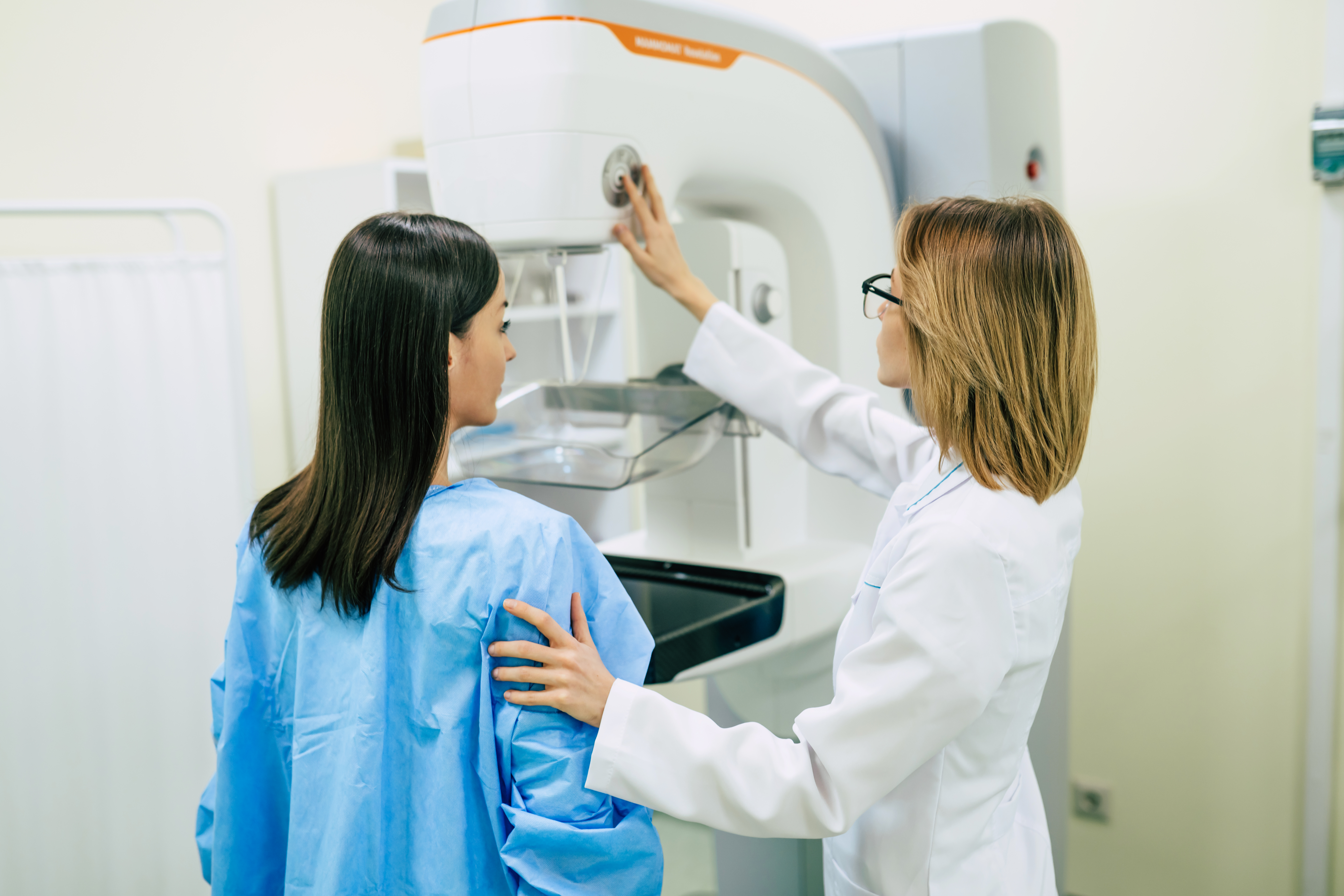You’re 22 weeks pregnant. A migraine blooms behind your right eye, and Tylenol sits in your medicine cabinet. Your OB has always said it’s safe, but a few weeks ago, headlines linked it to autism and ADHD. Suddenly, a once-simple decision feels loaded.
For decades, acetaminophen (the generic name for Tylenol in the United States–more commonly known as paracetamol in the rest of the world) has been considered the go-to pain reliever in pregnancy. Doctors have long advised against ibuprofen, aspirin, and stronger drugs, leaving expectant mothers with few choices for pain relief. Tylenol was framed as the safest bet. But recent research, culminating in a study published in August 2025 in the journal BMC Environmental Health, is now reshaping the narrative [1].
Titled “Evaluation of the evidence on acetaminophen use and neurodevelopmental disorders using the Navigation Guide methodology,” this joint systematic review of literature was led by a team of researchers from the Icahn School of Medicine at Mount Sinai and Harvard T.H. Chan School of Public Health. And, after its publication, the weight of evidence was deemed strong enough that the U.S. Secretary of Health and Human Services began urging caution with acetaminophen use in pregnancy.
So what’s actually new here? And how should women make sense of it?
A decade of mounting concerns
Concerns about Tylenol in pregnancy (and outside of it) aren’t new.
- 2014 Danish cohort study в JAMA Pediatrics: Suggested an association between prenatal acetaminophen exposure and ADHD in children. It was observational, meaning it couldn’t prove causation, but it raised eyebrows [2].
- 2018 Американский журнал эпидемиологии Review: Combined data from seven retrospective cohort studies, including over 130,000 mother–child pairs. Researchers found small, but statistically significant associations between prenatal acetaminophen exposure and increased risk of ADHD and autism spectrum disorder. The risk appeared slightly higher with longer or more frequent use, though the authors cautioned that the evidence was observational, and limited by recall bias and unmeasured confounding factors [3].
- 2021 Consensus Statement в Nature Reviews Endocrinology (91 scientists): Called for more transparency, warning that data pointed to possible risks and urging pregnant women not to use acetaminophen indiscriminately [4].
- 2023 article by Natural Womanhood: Picked up on these signals, noting that women often bore the burden of navigating confusing information; a mix of “don’t worry, it’s safe” from doctors and “but maybe not” from emerging science.
- 2024 Swiss registry study in JAMA: Analyzed data from over 2 million children and initially observed a modest correlation between maternal acetaminophen use and autism spectrum disorder. However, this association vanished in sibling-control models, indicating no causal relationship once shared familial factors were accounted for [5].
Together, these studies and commentaries painted a picture: maybe Tylenol wasn’t as harmless as once thought. But each came with significant limitations to making definitive statements about the safety of Tylenol use in pregnancy: small cohorts, reliance on maternal recall, or statistical noise.
Together, these studies and commentaries painted a picture: maybe Tylenol wasn’t as harmless as once thought. But each came with significant limitations to making definitive statements about the safety of Tylenol use in pregnancy: small cohorts, reliance on maternal recall, or statistical noise.
Enter Mt. Sinai/Harvard: Why their review of the data stands out
Сайт 2025 Mt. Sinai/Harvard systematic review is different [1]. Here’s why it matters:
Scale: The team screened decades of research and identified 46 human studies examining prenatal acetaminophen exposure and child neurodevelopment. Among these, 27 studies reported significant associations between maternal use and disorders such as ADHD and autism; 9 showed no association, and 4 suggested protective effects. Collectively, these studies encompassed millions of mother–child pairs across multiple countries. That diversity of data reduces the chance that cultural or methodological bias from any single study could skew the outcome.
Methodology: The researchers applied the Navigation Guide, a rigorous framework originally designed for environmental health science. Instead of selectively citing studies, this method systematically evaluates every piece of available evidence, grades its quality, and then determines the overall strength of the body of research.
Consistency: Despite differences in design, ranging from large national cohorts to case–control and sibling-controlled analyses, the same pattern persisted: prenatal acetaminophen exposure correlated with elevated risks of ADHD and autism spectrum disorders. Higher-quality studies, including those using biomarkers of exposure, were more likely to detect these associations.
Strength of Evidence: Earlier reviews had labeled the evidence as “limited” or “suggestive.” The Mt. Sinai/Harvard team upgraded it to “sufficient evidence of developmental risk,” the strongest level achievable without experimental proof. In plain terms, that means the link is consistent, reproducible, and unlikely to be due to chance.
In short: The Mt. Sinai/Harvard review didn’t expose a brand-new danger; instead, it confirmed with far greater confidence what a decade of research had already been warning. And that’s precisely why Secretary Kennedy’s call for caution resonated: not because a single bombshell study dropped, but because the accumulated evidence finally became too substantial to ignore.
What this doesn’t mean
It’s worth pausing here. The Mt. Sinai/Harvard study does не mean:
- That Tylenol causes autism or ADHD in every case.
- That avoiding Tylenol will drop autism rates to zero.
- That women who used Tylenol in pregnancy “caused” their child’s challenges.
Autism is complex, with roots in genetics, prenatal health, environmental exposures, and factors we still don’t understand. Tylenol may be one piece of the puzzle, not the whole picture.
Autism is complex, with roots in genetics, prenatal health, environmental exposures, and factors we still don’t understand. Tylenol may be one piece of the puzzle, not the whole picture.
The risk conversation
This is where it gets complicated. Medicine often deals in absolutes: “safe” or “unsafe.” But life doesn’t work that way.
Acetaminophen may still be the least risky pharmaceutically manufactured pain reliever available to pregnant women. Uncontrolled fever or unmanaged pain also carry significant risks to both mother and baby. For some women, Tylenol may remain the best choice.
Others may choose to avoid it entirely, using hydration, rest, or non-pharmaceutical remedies instead. Both responses are valid, but the conversation around Tylenol may encourage women to try to manage illnesses without pharmaceuticals while pregnant and only introduce acetaminophen (or any other medication approved by their doctor) when absolutely needed—and sometimes, they absolutely это needed!
As Natural Womanhood has often emphasized, women deserve full information and full autonomy, not medical paternalistic reassurances or fearmongering.
Pregnancy orthorexia and the illusion of zero risk
There’s also a cultural trap worth naming: orthorexia, the obsession with eating or living in a way that eliminates all possible risk.
Applied to pregnancy–as Leah Libresco Sargeant put it on X–”pregnancy orthorexia” could look like refusing Tylenol at all costs, even when a 102-degree fever threatens fetal health. Just as chasing a “perfectly clean” diet can harm more than it helps, chasing zero medical risk is impossible, misguided, and potentially dangerous.
The truth is less dramatic but more humane: health decisions are a matter of risk assessment, not risk elimination.
The truth is less dramatic but more humane: health decisions are a matter of risk assessment, not risk elimination.
Why the Secretary of Health and Human Services is speaking up now
So why the sudden attention on Tylenol and autism?
In short: Because the Mt. Sinai/Harvard study marks a tipping point. The signal of risk is now backed by enough evidence that ignoring it would be irresponsible. Importantly, Secretary Kennedy’s announcement doesn’t ban Tylenol, but it does acknowledge uncertainty in a way government health agencies rarely do.
In practical terms, it means:
- Doctors may start advising women to limit Tylenol to the lowest effective dose and shortest duration possible.
- Pregnant women may be encouraged to try alternatives first.
- Research into safer pain relief options for pregnancy may accelerate.
What women deserve
At the heart of this conversation is not just Tylenol, but trust. For too long, women have been told: “It’s fine, don’t worry,” only to later learn the story was far more complicated. That breeds both fear and resentment.
What women need is clarity without condescension. Acknowledgment of uncertainty and space to weigh risks for themselves. Pregnancy already comes with a thousand decisions and sacrifices; Tylenol should not become another source of guilt. Instead, choosing to use Tylenol given one’s unique health situation and tolerance for risk should be an example of what informed, autonomous decision-making looks like in practice.
What the Tylenol controversy shows most clearly is that women need better information to make informed decisions in (and outside) of pregnancy. And given the complicated nature of autism, ADHD, and other neurodevelopmental disorders, the conversation shouldn’t end at possible in-utero exposures that might lead to their development. As Anne Marie Williams explained in her 2023 Natural Womanhood piece on the safety of Tylenol in pregnancy:
“Detecting a link between Tylenol consumption and risk of autism and/or ADHD and then quantifying that risk is complicated because, as the American College of Obstetricians and Gynecologists (ACOG) points out, factors after birth can play a role in the childhood development of neurological disorders in addition to in-utero exposures. Certainly, genetic vulnerability plays some role in the development of autism, with or without Tylenol use, acknowledges Dr. Roberta Ness, the same epidemiologist who raised the alarm about talcum powder (baby powder) use potentially leading to increased risk of ovarian cancer. In other words, while there is some compelling evidence linking Tylenol use and autism/ADHD, more research is needed in this area.”
The bottom line on using Tylenol in pregnancy
The Mt. Sinai/Harvard study doesn’t demand panic. It demands perspective.
Yes, acetaminophen is no longer the unquestionably safe option it once was. But no, it is not an unmitigated poison to always be feared. Like most things in health and medicine, Tylenol lives in the gray zone, a tool with both benefits and risks. And that should be the real message: not that certainty exists, but that women should be given the information they need, so they can navigate that uncertainty with due consideration of their particular life circumstances and tolerance for risk.
Like most things in health and medicine, Tylenol lives in the gray zone, a tool with both benefits and risks.
Ссылки
[1] Prada D, Ritz B, Bauer AZ, Baccarelli AA. Evaluation of the evidence on acetaminophen use and neurodevelopmental disorders using the Navigation Guide methodology. Environ Health. 2025 Aug 14;24(1):56. doi: 10.1186/s12940-025-01208-0. PMID: 40804730; PMCID: PMC12351903. [2] Liew Z, Ritz B, Rebordosa C, Lee PC, Olsen J. Acetaminophen use during pregnancy, behavioral problems, and hyperkinetic disorders. JAMA Pediatr. 2014 Apr;168(4):313-20. doi: 10.1001/jamapediatrics.2013.4914. PMID: 24566677. [3] Masarwa R, Levine H, Gorelik E, Reif S, Perlman A, Matok I. Prenatal Exposure to Acetaminophen and Risk for Attention Deficit Hyperactivity Disorder and Autistic Spectrum Disorder: A Systematic Review, Meta-Analysis, and Meta-Regression Analysis of Cohort Studies. Am J Epidemiol. 2018 Aug 1;187(8):1817-1827. doi: 10.1093/aje/kwy086. PMID: 29688261. [4] Bauer, A.Z., Swan, S.H., Kriebel, D. и др. Применение парацетамола во время беременности - призыв к мерам предосторожности. Nat Rev Endocrinol 17, 757–766 (2021). https://doi.org/10.1038/s41574-021-00553-7 [5] Ahlqvist VH, Sjöqvist H, Dalman C, Karlsson H, Stephansson O, Johansson S, Magnusson C, Gardner RM, Lee BK. Acetaminophen Use During Pregnancy and Children’s Risk of Autism, ADHD, and Intellectual Disability. JAMA. 2024 Apr 9;331(14):1205-1214. doi: 10.1001/jama.2024.3172. PMID: 38592388; PMCID: PMC11004836.




